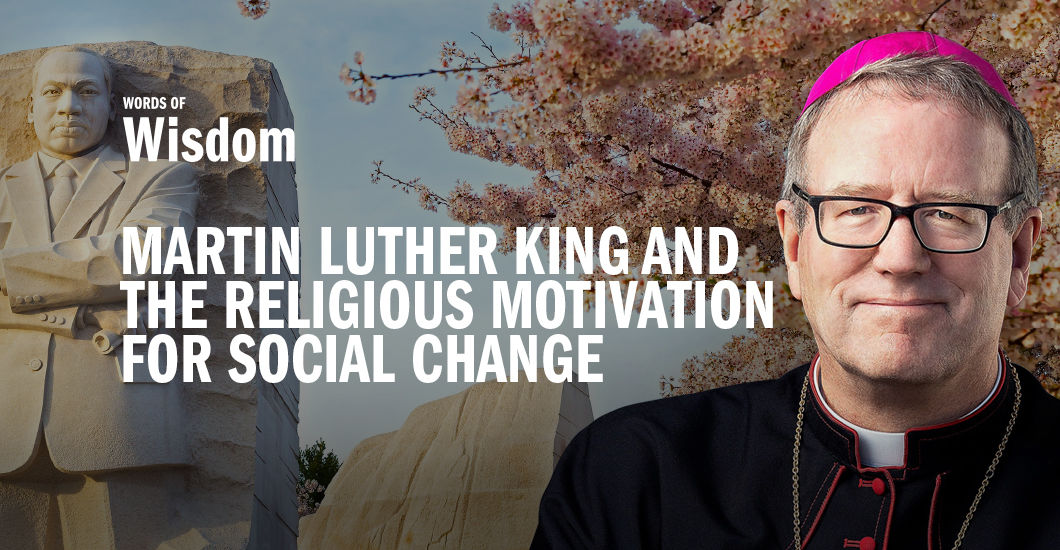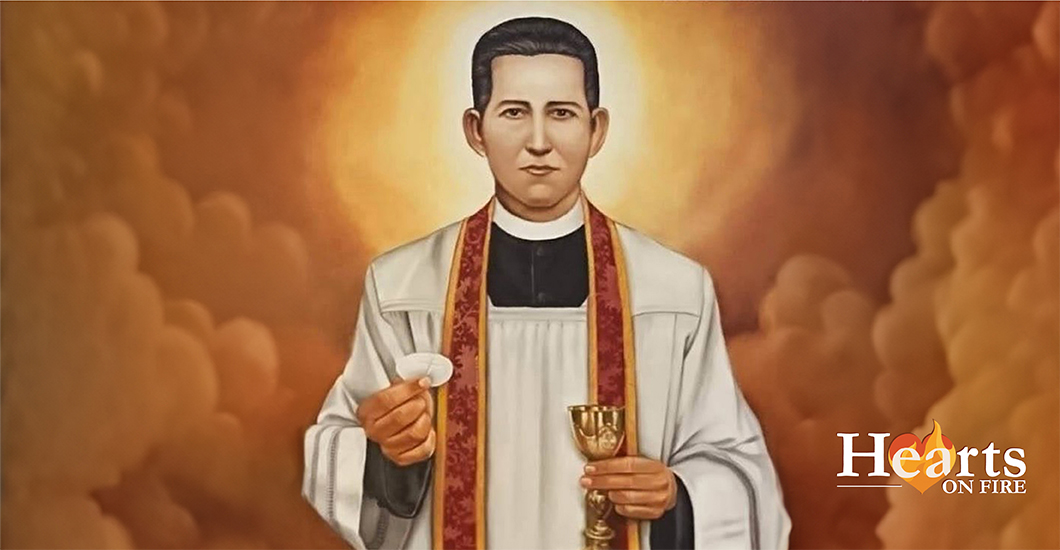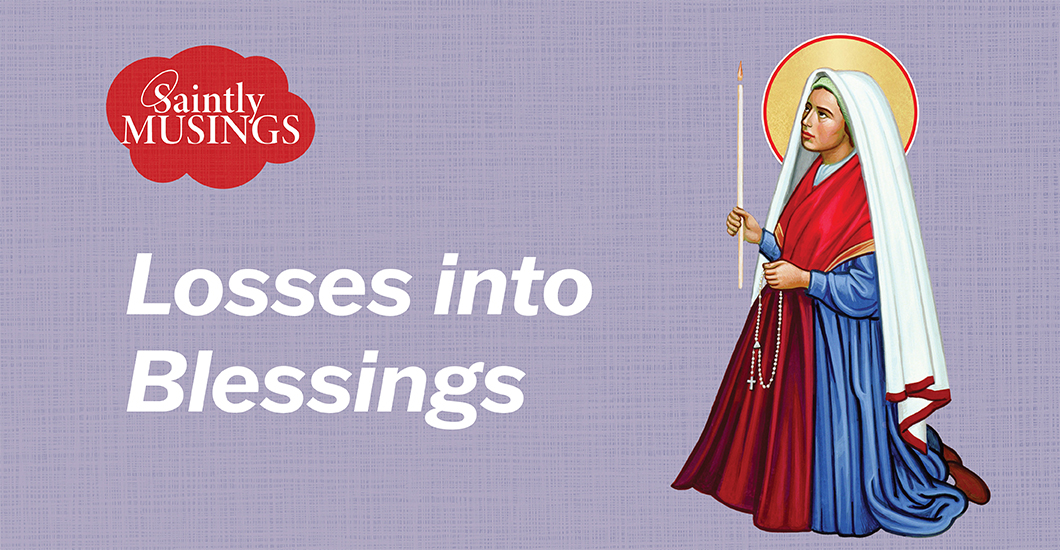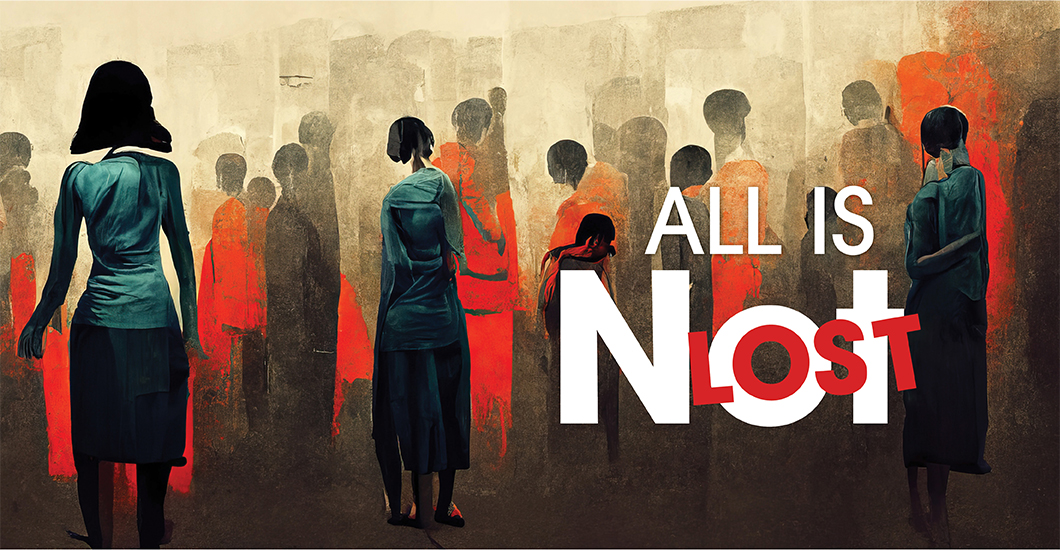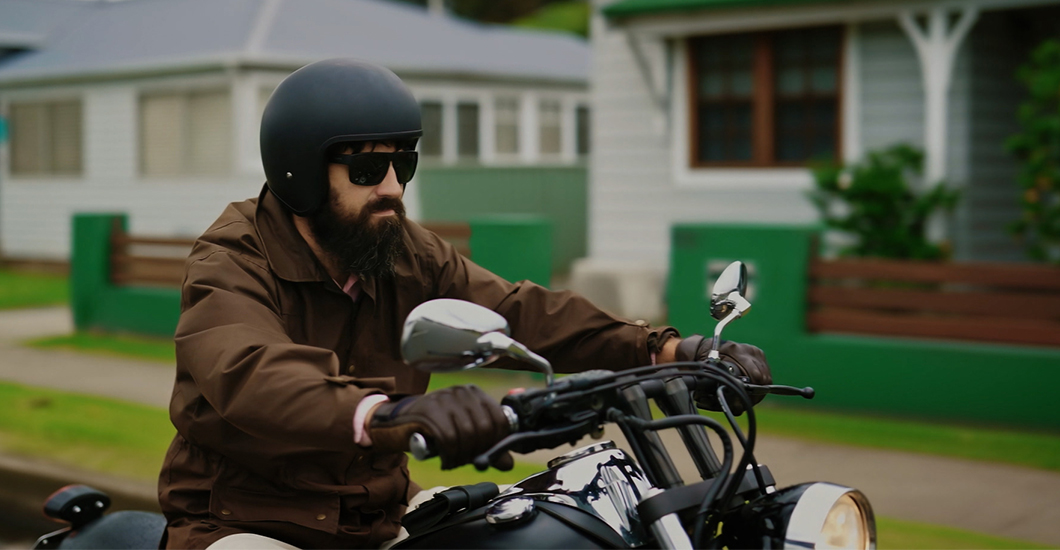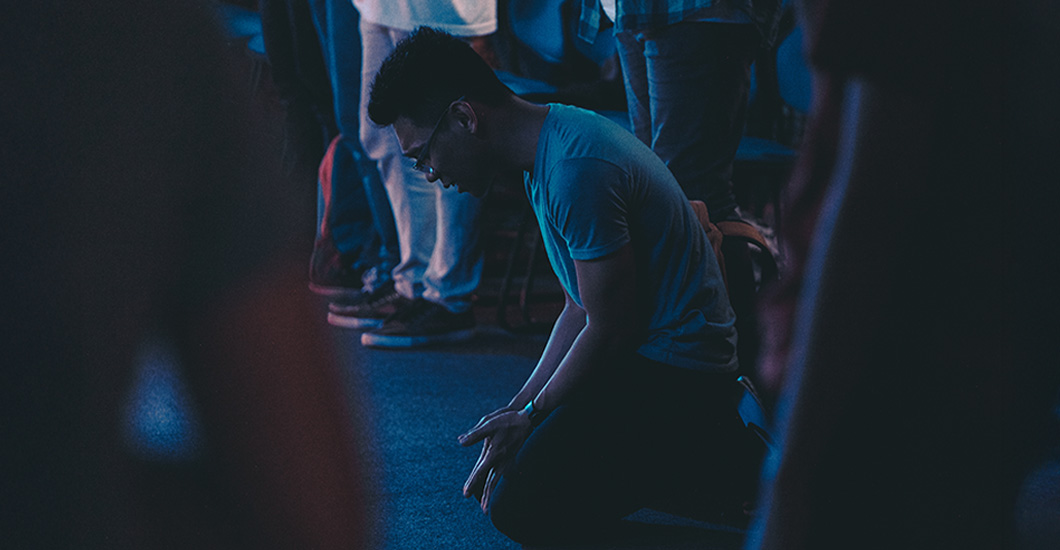Trending Articles
Words of Wisdom: Martin Luther King and the Religious Motivation for Social Change
A principal reason why the civil rights movement of the 1950s and 1960s was so successful, both morally and practically, was that it was led largely by people with a strong religious sensibility. The most notable of these leaders was, of course, Martin Luther King. To appreciate the subtle play between King’s religious commitment and his practical work, I would draw your attention to two texts—namely, his Letter from the Birmingham City Jail and his “I Have a Dream” speech, both from 1963.
While imprisoned in Birmingham for leading a nonviolent protest, King responded to certain of his fellow Christian ministers who had criticized him for going too fast, expecting social change to happen overnight. The Baptist minister answered his critics in a perhaps surprising manner, invoking the aid of a medieval Catholic theologian. King drew their attention to the reflections of St. Thomas Aquinas on law, specifically Thomas’ theory that positive law finds its justification in relation to the natural law, which finds its justification in relation to the eternal law. Aquinas means that what makes a practical, everyday law righteous is that it somehow gives expression to the principles of the moral law, which in turn are reflective of God’s own mind. Therefore, King concluded, unjust positive laws, such as the Jim Crow regulations that he was contesting, are not just bad laws; they are immoral and finally offensive to God.
Here is King’s own language: “One may well ask: ‘How can you advocate breaking some laws and obeying others?’ The answer lies in the fact that there are two types of laws: just and unjust. I would be the first to advocate obeying just laws. One has not only a legal but a moral responsibility to obey just laws.” But then King contrasts this with obedience to an unjust law: “Conversely, one has a moral responsibility to disobey unjust laws. I would agree with St. Augustine that ‘an unjust law is no law at all.’” And in clarifying the difference, he turns to Aquinas: “Now, what is the difference between the two? How does one determine whether a law is just or unjust? A just law is a manmade code that squares with the moral law or the law of God. An unjust law is a code that is out of harmony with the moral law. To put it in the terms of St. Thomas Aquinas: An unjust law is a human law that is not rooted in eternal law and natural law.” This is not pious boilerplate; rather, it reveals what gave King’s movement its justification and purpose.
The very same dynamic was on display six months later, when King addressed the throng who had gathered at the Lincoln Memorial for the March on Washington. He was not giving a sermon. He was making a political speech, advocating in the public place for social change. But attend to some of the language that he used: “I have a dream that one day every valley shall be exalted, and every hill and mountain shall be made low, the rough places will be made plain, and the crooked places will be made straight; ‘and the glory of the Lord shall be revealed and all flesh shall see it together.’” He was directly relating the social revolution he was advocating to the mystical vision of the prophet Isaiah. And listen to the magnificent conclusion of the address in which he artfully blends the lyrics of an American patriotic song to the lyrics of a song he and his family sang in church: “And when this happens, and when we allow freedom ring, when we let it ring from every village and every hamlet, from every state and every city, we will be able to speed up that day when all of God’s children, black men and white men, Jews and Gentiles, Protestants and Catholics, will be able to join hands and sing in the words of the old Negro spiritual: Free at last! Free at last! Thank God Almighty, we are free at last!” Once again, on King’s reading, the political nests within the moral, which nests within the sacred.
Martin Luther King derived from his religious heritage not only the metaphysics that informed his social activism, but also the nonviolent method that he employed. What Jesus reveals in the rhetoric of the Sermon on the Mount (“Love your enemies”; “Bless those who curse you, pray for those who maltreat you”; “If someone strikes you on the right cheek, turn and give him the other”; etc.) and even more strikingly in his word of forgiveness from the cross is that God’s way is the way of peace, nonviolence, and compassion. As a Christian, King knew in his bones that reacting to oppression with violence would only exacerbate the tensions within society. He sums up this principle in one of his best-known sermons: “Returning hate for hate multiplies hate, adding deeper darkness to a night already devoid of stars. Darkness cannot drive out darkness; only light can do that. Hate cannot drive out hate; only love can do that.”
Within the confines of this brief article, I cannot begin adequately to address the social upheaval occurring in our culture today. But I will say simply this: it is indisputably clear that there are severe moral deficits in our society that must be addressed, but the best way to do so is from within a moral and finally religious framework. May Martin Luther King’s model of leadership in this regard be a lodestar.

© Bishop Robert Barron is the founder of Word on Fire Catholic Ministries and is the bishop of the Diocese of Winona–Rochester. Bishop Barron is a #1 Amazon bestselling author and has published numerous books, essays, and articles on theology and the spiritual life. ARTICLE originally published at wordonfire.org. Reprinted with permission.
Related Articles
The Mexican Revolution which began in the early 1920s, led to the persecution of the Catholic community in that country. Pedro de Jesus Maldonado-Lucero was a seminarian at that time. Once he became a priest, despite the risk, he stood with his people. He tended to his flock during a terrible epidemic, founded new apostolic groups, reestablished associations, and ignited Eucharistic piety among his parishioners. Upon discovering his pastoral activities, the government deported him, but he managed to return and continue serving his flock, in hiding. One day, after hearing the confessions of the faithful, a gang of armed men busted his hiding place. Father Maldonado managed to grab a reliquary with Consecrated Hosts as they forced him out. The men forced him to walk barefoot throughout the town, as a crowd of the faithful followed him. The city mayor grabbed Father Maldonado's hair and dragged him toward the city hall. He was knocked to the ground, resulting in a skull fracture that popped out his left eye. He had managed to keep his grip on the pyx until this time, but now it fell out of his hands. One of the thugs took some Holy Hosts, and as he forcefully stuffed the hosts inside the priest’s mouth, he shouted: “Eat this and see if He can save you now.” Little did the soldier know that just the night before, during the Holy Hour, Father Maldonado had prayed that he would happily give his life for an end to the persecution ‘if only he would be allowed to take Communion before his death.’ The thugs left him for dead in a pool of his own blood. Some local women found him still breathing and rushed him to a nearby hospital. Father Pedro Maldonado was born into eternal life the next day, on the 19th anniversary of his priestly ordination. Pope John Paul II canonized this Mexican priest in 2000.
By: Shalom Tidings
MoreWhatever the situation you are going through, God will make a way where there seems to be no way… Today, my son Aaric brought home his dictation book. He got a red star with a ‘good’ remark. This might not be a big deal for a kindergartener, but for us, it is a celebrated achievement. The first week of school, I got a call from his class teacher. We dreaded this call, my husband and I. As I tried hard to explain his communication skills (or lack thereof) to his teacher, I remember confessing that while I cared for his big sister with special needs, I had fallen into this pattern of doing things without being asked. As she could not utter a single word, I had to guess her needs. The same mode was turned on for Aaric, too, in his early days. Even before he asked for water, I would give it to him. We had a bond that didn’t need words, a language of love, or so I thought. How miserably wrong I was! Not much later, when his little brother Abram turned three months old, I had to take those heavy steps again to see the counselor at school. This time, it was about Aaric’s poor writing skills. His dear class teacher panicked when she saw him drop his pencil on the table and stubbornly fold his hands as if to say: “I won’t write.” We dreaded this, too. His little sister Aksha was an expert at scribbling at the age of two, but Aaric wouldn’t even hold the pencil. He just didn’t fancy it. The First Step After receiving instructions from the counselor, I visited the principal, who insisted that we undergo a thorough assessment if his communication continues to be weak. I couldn’t even think of that back then. For us, he was a miracle baby. After what we went through with our firstborn and three miscarriages, Aaric had defied all odds. He was born full-term, unlike what the doctors had predicted. His vitals were normal at birth. “He’s a big baby!” exclaimed the doctor on bringing him out through a C-section. We watched him grow step by step with almost bated breath, praying nothing would go wrong. Aaric soon reached all his milestones. However, when he was just one year old, my father mentioned that he may need speech therapy. I brushed it off as being too early to diagnose. The truth was, I didn’t have the strength to face another problem. We were already worn out with all that our firstborn was going through. Anna was born preterm at 27 weeks. After many grueling days in the NICU, she was diagnosed with severe brain damage at three months and had epileptic seizures. After all the treatments and medications, our now 9-year-old daughter still battles with cerebral palsy and intellectual disability. She is unable to sit up, walk, or talk. Countless Blessings There’s a limit to holding off the inevitable, so six months ago, we reluctantly took Aaric to get an initial assessment. The ADHD diagnosis was hard. We struggled to accept it, but we still put him through speech therapy. At this point, he was only stuttering a few words. A few days back, I mustered the courage to go to the hospital with Aaric and get a full, thorough assessment. Mild autism was what they said. As we were going through the process of assessment, several questions were asked. To my surprise, my response to most of these questions was: “He wasn’t able to, but now he can.” Praise God! By the power of the Holy Spirit living in him, everything is possible. I believe that praying and blessing him every day before going to school has made a difference. The change was radical when he began to memorize Bible verses. And the beauty is that he recites those verses just when I need them. Indeed, the Word of God is living and active. I believe the transformation is ongoing. Whenever I feel low, God surprises me by making him say a new word. Amid the tantrums he puts up, and when everything seems to crumble down, my little girl, three-year-old Aksha, simply comes up and gives me a hug and a kiss. She really knows how to comfort her mama. I believe that God will surely intervene and heal our eldest daughter, Anna, too, for nothing is impossible for Him. Change is already visible—the number of times she goes into epileptic seizures has gone down tremendously. In our walk of life, things may not be going as expected, but God never leaves nor forsakes us. Just like oxygen that is essential yet invisible, God is ever present and provides the life we need so badly. Let us cling to Him and not doubt whilst in the darkness. May our testimony reveal the truth of how beautiful, wonderful, and loving our God is and how He transforms us to say: “I was …, but now I am ….”
By: Reshma Thomas
MoreLife is full of unexpected turns. Nearly six years after the death of her mother, Bernadette had to suffer the loss of her father too. Since leaving Lourdes to join the religious order, she never had a chance to see him. When assailed by this sudden demise, this is how Bernadette found strength—A sister found her crying in front of a statue of the Virgin Mary, and when the sister tried to console her, she said: “My sister, always have great devotion to the agony of our Savior. Last Saturday in the afternoon, I prayed to Jesus in agony for all those who would die in that moment, and it was precisely the very moment my father entered eternity. What a consolation it is for me to have helped him.” For Bernadette, the Saint who, as a little girl, had the apparition of Mary at Lourdes, life was not without troubles. She had to go through many tribulations; big and small humiliations bombarded her. She often said: “When my emotions are too strong, I remember the words of Our Lord: 'It is I, don’t be afraid.' I immediately appreciate and thank Our Lord for this grace of rejection and humiliation from those in authority. It is the love of this Good Master who would remove the roots from this tree of pride. The more little I become, the more I grow in the Heart of Jesus.”
By: Shalom Tidings
MoreI was going through my old prayer journal, wherein I had written prayer requests. To my amazement, every single one of them was answered! Anyone taking a cursory look at the news these days may find themselves despairing, wondering where God is, and needing hope. I know I have found myself in this position on certain days. We feel out of control, and we wonder what we can do about all of the horrible things we see. I want to share with you a story. A few years ago, I started keeping a journal of prayer requests of the people and things I was praying for. I often prayed a Rosary for these things, as I still do today for prayer petitions. One day, I came across an old journal of my written prayer requests. I began to peruse the pages of what I had written long ago. I was astounded. Each prayer had been answered—maybe not always in ways I thought they would be answered, but they were answered. These were no small prayers. “Dear Lord, please help my aunt stop drinking alcohol. Dear Lord, please help my infertile friend have children. Dear Lord, please heal my friend from cancer.” As I scrolled down the page, I realized that every single prayer had been answered. Many in a bigger and better way than I imagined. There were a couple that, at first glance, I thought had not been answered. One friend who needed healing from cancer had passed away, but then I remembered that she had confession and anointing of the sick before she died. She died peacefully in the mercy of God, surrounded by His healing grace. But other than that, the majority of the prayers were answered here in this world. Many prayer requests had seemed like impossible mountains, but they had been moved. God’s grace takes our prayers and our perseverance in prayer, and He moves all things toward good. In the quiet of my prayer, I heard a whisper: “I have been working all these things throughout time. I have been writing these stories. Trust me.” I believe we are in perilous times. But I also believe that we are made for these times. You may say to me: “Your personal prayer requests being answered seems great, but nations are at war.” And my response to that is, again, nothing is impossible with God, not even stopping war by using our prayers. I remember it happening in the past. We should believe that God can act that big right now. For those not old enough to remember, there was a scary time when it looked like a blood bath was coming. But through the power of the Rosary, things changed. I was in 8th grade, and I remember hearing about all the turmoil in the Philippines. Ferdinand Marcos was the dictator of that country at the time. It was shaping up to become a bloody battle with a few people already dead. A staunch critic of Marcos, Benigno Aquino, was assassinated. But it didn’t become a bloody battle. Cardinal Jaime Sin of Manila had asked people to pray. They went out in front of the military, praying the Rosary aloud. They stood in front of tanks praying. And then, a miraculous thing happened. The military laid down their weapons. Even the secular media, the Chicago Tribune, reported how “Guns fell to Rosaries.” The revolution was over, and the glory of God was seen. Don’t stop believing in miracles. Expect them. And pray the Rosary every chance you get. Lord knows our world needs it.
By: Susan Skinner
MoreAt the age of six, a little girl decided she did not like the words ‘prison’ and ‘hanged’. Little did she know that at the age of 36, she would be walking with death-row prisoners. In 1981, the shocking murders of two young children became front-page news in Singapore and around the world. Investigation led to the arrest of Adrian Lim, a medium who had sexually abused, extorted, and controlled a string of clients by fooling them into believing that he had supernatural powers, torturing them with electro-shock ‘therapy.’ One of them, Catherine, had been a student of mine who had gone to him to be treated for depression after her grandmother’s death. He had prostituted her and abused her siblings. When I heard that she was charged with participating in the murders, I sent her a letter and a beautiful picture of the Sacred Heart of Jesus. Six months later, she wrote back, asking, “How can you love me when I have done such bad things?” For the next seven years, I visited Catherine weekly in prison. After months of praying together, she wanted to ask forgiveness from God and all the people that she had hurt. After she had confessed her sins, she had such peace, she was like a different person. When I witnessed her conversion, I was beside myself with joy, but my ministry to prisoners was just beginning! Tracing Back I grew up in a loving Catholic family with 10 children. Every morning, we would all go to Mass together, and my mother would reward us with breakfast in a coffee shop near the church. But after a while, it stopped being about food for the body and became solely about nourishment for the soul. I can trace my love for the Eucharist to those early morning Masses with my family where the seed of my vocation was sown. My father made every one of us feel especially loved, and we never failed to run joyfully into his arms on his return from work. During the war, when we had to flee Singapore, he would home-school us. He’d teach us phonetics every morning, asking us to repeat a passage in which someone was sentenced to death at Sing Sing prison. At the tender age of six, I already knew that I didn’t like that passage. When it was my turn, instead of reading it, I recited the Hail Holy Queen. Little did I know that I would one day be praying with prisoners. It’s Never Too Late When I began visiting Catherine in prison, several other prisoners showed interest in what we were doing. Whenever a prisoner requested a visit, I was glad to meet with them and share God’s loving mercy. God is a loving Father who is always waiting for us to repent and turn back to Him. A prisoner who has broken the law is similar to the Prodigal Son, who came to his senses when he reached rock bottom and realized, “I can go back to my Father.” When he returned to his Father, asking for forgiveness, the Father came running out to welcome him back. It is never too late for anyone to repent of their sins and turn back to God. Embracing Love Flor, a Filipino woman accused of murder, learned about our ministry from other prisoners, so I visited her and supported her as she appealed her death sentence. After the rejection of her appeal, she was very angry with God and wanted nothing to do with me. When I passed her door, I would tell her that God still loved her no matter what, but she sat in despair staring at the blank wall. I asked my prayer group to pray the Novena to Our Lady of Perpetual Succour and offer their sufferings specifically for her. Two weeks later, Flor had a sudden change of heart and asked me to come back with a priest. She was bubbling over joy because Mother Mary had visited her cell, telling her not to be afraid because she would stay with her until the end. From that moment, until the day of her death, there was only joy in her heart. Another memorable inmate was an Australian man who was imprisoned for drug trafficking. When he heard me singing a hymn to Our Lady to another prisoner, he was so touched that he asked me to visit him regularly. His mother even stayed with us when she came to visit from Australia. Eventually, he also asked to be baptized as a Catholic. From that day on, he was full of joy, even as he walked to the gallows. The superintendent there was a young man, and as this former drug dealer walked to his death, this officer came forward and embraced him. It was so unusual, and we felt it was like the Lord Himself embracing this young man. You just can’t help but feel God's presence there. In fact, I know that every time, Mother Mary and Jesus are there to receive them into heaven. It has been a joy for me to truly believe that the Lord who called me has been faithful to me. The joy of living for Him and for His people has been far more rewarding than anything else.
By: Sister M. Gerard Fernandez RGS
More“All we like sheep have gone astray; we have all turned to our own way…” (Isaiah 53:6) My current car has a lane departure warning system. Every time I stray out of my designated lane while driving, the car gives me a warning signal. This was annoying at first, but now I appreciate it. My old car did not have such advanced technology. I had not realized how often I drifted out of bounds while driving. Over the past few months, I have started participating in the Sacrament of reconciliation (Confession). For decades, I had ignored this practice. I felt like it was a waste of time. I thought to myself: Why does a person need to confess his sins to a priest when they can speak directly to God? Examining your conscience regularly is uncomfortable. Admitting your sins, out loud, is humiliating. But the alternative is even worse. It’s like refusing to look in a mirror for years. You may have all sorts of stuff stuck on your face, but you go about under the false impression that you look fine. These days, I try to go to Confession weekly. I take time for self-reflection and the examination of my conscience. I have noticed a change within me. Now, as I go through each day, my internal warning system has been reactivated. Every time I stray off the path of goodness by aimless striving and endless pursuits, my conscience gives me a signal. This allows me to get back on course before I wander too far into the danger zone. “For you were going astray like sheep, but now you have returned to the shepherd and guardian of your souls.” (1 Peter 2:25) The Sacrament of reconciliation is a gift that I disregarded for too long. I was like a sheep who had wandered away. But now I have turned to my Shepherd, the Guardian of my soul. He checks my spirit when I stray. He redirects me onto the path of goodness and safety.
By: Nisha Peters
MoreWhat is the way out of fear, anxiety, and depression? Christians believe that God is three in One. We profess faith in God the Father, God the Son, and God the Holy Spirit. Behaviorally, however, we place our emphasis on the first two Persons of the Trinity—we pray the Our Father and believe He sent His Son, Jesus, for our salvation. And, while we recognize that the Holy Spirit is the divine “Lord and giver of Life,” we tend to forget the Spirit and don’t give Him the opportunity to give us Life! Let’s revisit the story of Pentecost and rediscover how the Holy Spirit can be the “Lord and giver of life” for us, because without the Spirit, our faith becomes a barren, joyless moralism. The second chapter of Acts (vs. 1-11) describes the Apostles’ encounter with the Holy Spirit and how they behaved afterwards. Following fifty days of uncertainty, something big is about to happen. Jesus had entrusted His Mission to the Apostles the previous week, but are they ready to proclaim the risen Lord? Can they set aside their doubts and fears? The coming of the Holy Spirit changes everything. The disciples are no longer afraid. Before, they feared for their lives; now, they are ready to preach the Good News to all the nations with a zeal that cannot be suppressed. The Holy Spirit neither takes away all their difficulties nor the opposition of the religious establishment. But the Spirit endows them with a dynamism that enables them to proclaim the Good News to the ends of the earth. How did this happen? The lives of the Apostles needed to be radically changed, and the gift of the Spirit is how that change occurred. In the Spirit, they encountered the third person of the Trinity—a real person, not just a force, but a person with whom we can be in relationship. While we know the Father as Creator, and the Son as Redeemer, we come to know the Spirit as Sanctifier, the one who makes us holy. It is the Holy Spirit that makes Jesus live within us. While Jesus is no longer physically present among us, He remains within us through the Holy Spirit. And that Spirit brings peace—a peace that does not free us from problems and hardships, but enables us in our problems to find peace, to persevere, and to hope because we know we are not alone! Faith is not a problem-solving enterprise: when one problem goes away, another takes its place. But faith assures us that God is with us in our struggles, and that the love of God and the peace Jesus promised are ours for the asking. In today’s frenzied world, super-charged by social media and our digital devices, we find ourselves pulled in a thousand directions, and sometimes we get burned out. Then we look for the quick fix, sometimes resorting to self-medication through alcohol or pill-popping, or one hedonistic thrill after another. During such restlessness, Jesus enters our lives through the Holy Spirit and says, “Peace be with you!” Jesus throws us an anchor of hope. As Saint Paul says in his letter to the Romans, the Spirit keeps us from falling back into fear, for He makes us realize that we are beloved children of our heavenly Father (Romans 8:15). The Holy Spirit is the Consoler, who brings the tender love of God into our hearts. Without the Spirit, our Catholic life unravels. Without the Spirit, Jesus is little more than an interesting historical figure, but with the Holy Spirit He is the risen Christ, a powerful, living presence in our lives here and now. Without the Spirit, Scripture is a dead document. But, with the Spirit, the Bible becomes the living Word of God, a word of life. The living God speaks to us and renews us through His Word. Christianity without the Spirit is joyless moralism; with the Spirit, our faith is life itself—a life we can live and share with others. How can we invite the Holy Spirit into our hearts and souls? One way is by reciting a simple prayer: “Veni Sancte Spiritus” (“Come, Holy Spirit”). Another way to deepen your relationship with the Holy Spirit is to reflect upon the seven Gifts of the Holy Spirit, which we receive at Confirmation. Find a commentary on wisdom, understanding, counsel, fortitude, knowledge, piety, and fear of the Lord, and strive to integrate these gifts into your everyday life. A good way to know if you are living the gifts of the Spirit is to ask yourself if your life manifests the fruits of the Holy Spirit (found in Paul’s letter to the Galatians [5:22-23]). If love, joy, peace, patience, kindness, goodness, faithfulness, gentleness, and self-control are present in your life, then you know the Holy Spirit is at work! Prayer: Come Holy Spirit, fill the hearts of your faithful and kindle in us the fire of your divine love! Endow us with your gifts and make our lives fertile ground that produces an abundance of love, joy, peace, patience, kindness, goodness, faithfulness, gentleness, and self-control. AMEN.
By: Deacon Jim McFadden
MoreHappiness is a ring on your finger Have you ever wondered why the finger next to the pinkie is traditionally the one with the wedding ring? The Chinese came up with this explanation. Let’s try a simple exercise. Join your hands in prayer with the fingers pointing up. Now move your palms with the fingertips still touching each other. Bend both middle fingers downward so that the tips of these fingers are now pointing down and the backs of both fingers are touching. Allow the hands to remain in this position, then try pulling back the thumbs and allowing them to touch again. This is quite easy. The thumbs represent your relationship with your parents. In your childhood, you live with them and important decisions can’t be made without them, but at some point in life, you usually start making decisions on your own and move out. You separate physically from them. Now, try the same motion for the index finger. Notice that it is also easy to do this with your index and pinkie fingers, which represent siblings and children. You will not be living with your siblings or your children all your life. Finally, try to move the ring fingers, which represent you and your spouse. It is impossible unless you separate the middle fingers. So, what do the middle fingers bent downward represent? - The sacrament of Matrimony. When a man and a woman make vows of commitment to each other until death, they are bonded by God into a one flesh union, as husband and wife. If the middle fingers are separated it is easy to pull the ring fingers away from each other. So, spouses can only be separated by death, or by breaking their covenant with God and each other. Today, we see a lot of confusion about the meaning, value and purpose of marriage and an increase in broken families. Tension between spouses is amplified by the modern world’s exclusion of God from relationships. When marriage is about personal fulfillment, people become preoccupied by the flaws, shortcomings and failures of their spouses and of others. Perhaps this is why Pope St John Paul II, anticipating this degeneration of modern society, exhorted the people of Australia, “As the family goes, so goes the nation and so goes the whole world in which we live. Do not be afraid to take a chance on Peace – to teach Peace, to live Peace… Love between man and woman cannot be built without sacrifices and self-denial.” When they fail to do this, we have chaos in the family and chaos in the world. He also reminded the people of the United States that “Freedom consists not in doing what we like, but in having the right to do what we ought.” Protect each other When the woman caught in adultery was brought before Jesus(Jn 8: 3-11), those who condemned her dragged her into the middle of the crowd to expose her shame and humiliate her publicly. Jesus unexpectedly responded by unmasking their own sinfulness, instead of embarrassing her further. When the crowd melted away in reaction to his challenge, He (the only sinless one among them) forgave her and encouraged her not to sin again. When we contemplate the Bible’s description of St Joseph’s treatment of women, we see the same compassionate behaviour. When he was told that Mary was with child, Joseph was unwilling to expose her to shame. Jesus and Joseph both followed the same action plan. The woman before them should not be publicly shamed, but treated with respect and kindness. My wife and I are not perfect. We both have our share of weaknesses. When I became her husband, I received a special grace to be her champion, so that her deficiencies, faults and failures are not exposed to anyone, even close family members. When I, as a husband, fail to fulfill this mission, then an attitude of disapproval poisons our family life and needs to be remedied. Even before our marriage, we had often spoken about this. Both of us had seen plenty of examples, among our family and friends, of a husband or wife badmouthing the other at social events. Recently my wife pointed out an opposite example. We had known this couple for a long time, but recently, when my wife interacted more closely with the wife, she noticed weaknesses in her character. My wife told me something that made me seriously consider my own attitude in this area. She said that in all the years we had known and interacted with this couple, her weaknesses had never been exposed because her husband shielded her so well. Unquenchable Fire “Be who God meant you to be and you will set the world on fire” (St Catherine of Siena). Becoming the person God meant you to be is not easy or quick to achieve. Short-term sacrifices won’t keep the fire blazing. In the early stages of my marriage, I was motivated to go out of my way to serve my wife. I did this with sincerity, but also some discomfort as I stretched myself to meet her needs. However, I became inordinately proud of myself for doing so. Those affectionate courtesies that dominated the early phase of my marriage began to diminish because I started to feel that I had done enough to earn the respect I desired. Then I realized that a few considerate actions, were not going to convert anyone in my family, because my intentions were self-centred. If I wanted to lead my wife and kids to Heaven, I needed to engage in a lifetime of self-sacrificial actions. Marriage isn’t a contract where each of the partners gives 50% and gets 50%. It is a covenant relationship where each of the spouses gives 100% of what they have to give and receives the wholehearted support of their spouse. As Pope St John Paul II put it so well, “Love consists of a commitment which limits one’s freedom. It is a giving of the self, and to give oneself means just that: to limit one’s freedom on behalf of another.” (Love and Responsibility). So, I began to treat my wife and children as if I were hosting the Holy Family in my home as honoured guests. Sometimes my actions aren’t noticed or appreciated, but the Holy Family never fails me. They taught me true joy and I have never had more refreshing sleep. The next day I get up and do it all over again, not relying on my own strength but by depending on the Lord’s mighty power. I believe family life is strangled by service that is limited and calculated. However, service that costs us something - that is sacrificial - invigorates and inspires reciprocal loving service. This is the path to sainthood. Lord Jesus, help me to contemplate The Holy Family. In this age, when the attack on the family is so fierce, help me to spend more time in prayer with the Holy Family so that I may care better for my loved ones. Help me to unselfishly grow in holiness so that I may lead my family to encounter your unfailing love and mercy. Amen. Jesus, Mary and Joseph, protect our families.
By: Jenson Joseph
MoreThe coronavirus is indeed causing havoc in the world today; but is there a virus deadlier than this? As I write this, almost the whole world is in the grips of the virus that has paralysed mankind. Who would have thought that in this age of advanced technology, with daily scientific discoveries, we could be taken by surprise? Or that, while mankind has ventured to nearby planets, our plans for our lives and our future together on earth could be so dampened that we will be forced to live an inferior lifestyle, very different to what we are used to? 2020 has barely begun, but Australia (where I live) has already suffered several disastrous events, culminating in the current crisis. The year began with catastrophic bushfires which burned massive tracts of land, killed numerous people and animals and destroyed many, many homes and properties. Smoke darkened our skies, intruded into our homes and even interfered with sporting fixtures. Just as we were starting to recover from that, extensive storms and heavy rain struck, pelting some places with huge hailstones and causing flash floods. Just when we thought we can now move on; the Coronavirus has invaded our lives. Now, we are all enduring the stifling restrictions which are crippling our economies, our communities, our education and our access to the sacraments. Mankind is afraid and though many still show a brave face, we are all aware that some of us may not see tomorrow. Currently much of the world is in a war-like situation. Some people are fighting for toilet rolls, stockpiling food for months and cutting off all physical contact. All public places except essential services are closed and New York - the centre of international business - is now under the supervision of the National guard. This is an extraordinarily difficult time for leaders of all nations as they venture into uncharted territories. A few of them have even contracted the virus themselves. The virus, and all the restrictions it has caused, can only damage us physically and psychologically. Scripture teaches us that the body is the temple of the Holy Spirit, so we must protect and care for it, but Jesus reminded us not to fear what can only kill the body. Our souls are invaluable in God’s sight and it lives forever. Jesus came into a world focused on the physical life and material things to show us that the spiritual life is more important than anything else. The flesh must pass away, but the soul will live on eternally. The real virus that has paralysed mankind today is SIN. No other virus has ever caused greater damage than the virus of SIN that has crippled and degenerated us so much that many are already living dead, empty lives, fulfilling no other purpose than to entertain themselves. Sin has distanced us from God, darkened our minds, hardened our hearts, dulled our ears, blinded our eyes and sickened our souls. This is far more terrible than being unable to move around freely doing what we like. We could face an eternity separated from all that is good, unless we change our ways. Jesus took up the burden of sins of all mankind and died for all of us, so we could live with Him forever. So, we need not fear death if we accept His salvation and follow Him daily. We will all die one day and because of our hope in Jesus, we can rejoice as death approaches. So if you are a Christian, this is the time to showcase our faith, to be fearless, trusting in the life that Jesus has already offered and prepared for us. This is the time as the church teaches, to receive spiritual communion. The heart of a Christian would be full of joy in this time since nothing can separate us from the love of Christ. And any sickness especially leading to death is a time of great rejoicing for such a person. As St Paul says, “For to me to live is Christ and to die is gain” Philippians 1:21. We must now, without fail, pray for mercy and forgiveness on behalf of our brothers and sisters who do not know Him and haven’t accepted HIM as their Lord and Saviour and are unaware of the joy of that relationship. We must also do whatever is possible to help those around us as inspired by the Holy Spirit. For those who only follow a tradition by going to church every Sunday and do not really share a relationship with God, this is your time to look deep within your heart where Christ awaits you. This is where HE always desired to meet you. Instead of filling the free time with empty things during this shutdown, seize the opportunity to spend time in silence, read the Bible and allow HIS word to take flesh in your life. There is no better time than this to forgive and to ask forgiveness from those whom we have offended. For those who are still following other man-made religions/ways of life (receiving some sort of temporal satisfaction), Jesus declares that HE is the truth, the way and the life. This means that if you are really searching for the truth, all roads will lead you to Jesus Christ alone. Are you searching for the truth or are you settling for breadcrumbs falling off the table? For those who are depending only on their good works or those who are following nothing at all, this is your time to reflect on your inner life and give your souls and hearts to Jesus and be saved. “Taste and see that the Lord is good” Psalm 34:8. Let’s prepare ourselves for our last day that will come at an hour we do not expect. It may be when Jesus will return in glory to gather all those who love and follow Him. Or it may be at any moment before that. Chris Hadfield, the first Canadian to walk in space states that astronauts do not go into space with their fingers crossed and that the more you know, the less you fear. In other words, the less you know, the more you fear. I encourage you to know Jesus Christ, the Son of God, for to know him is to know the truth (John 8:32) and to have eternal life (John 17:3). Let us recognise that the real virus that afflicts us is Sin. Let us allow Jesus to take over our lives, deliver us from sin and lead us to eternal life.
By: Cyril Abraham
MoreBy now most of you are probably aware of the depressing statistics regarding the “nones,” that is to say, those in this country who claim no religious affiliation. The most recent survey showed that now fully one fourth of Americans belong to no religion at all—that’s approximately 80,000,000 people. And among those in the 18-29 age group, the percentage of nones goes up to 40! This increase has been alarmingly precipitous. Fifty years ago, only a fraction of the country would have identified as unreligious, and even a decade ago, the number was only at 14%. What makes this situation even more distressing is that fully 64% of young adult nones were indeed raised religious but have taken the conscious and active decision to abandon their churches. Houston, we definitely have a problem. I have written frequently regarding practical steps that religious leaders ought to be taking to confront this rising tide of secularist ideology, and I will continue to do so. But for the moment, I would like to reflect on a passage from the Gospel of Luke, which was featured on the Solemnity of Mary the Mother of God, and which sheds considerable light on this issue. It has to do with the visit of the shepherds to Mary and the Christ child in the stable at Bethlehem, and it hinges on three words: haste, astonished, and treasured. We hear that, upon receiving the angel’s message, the shepherds “went in haste” to visit the holy family. This echoes a passage from a bit earlier in Luke’s Gospel: having heard the news of her own pregnancy and that of Elizabeth, Mary, we are told, “went in haste” to the hill country of Judah to help her cousin. The spiritual truth that both of these pericopes disclose is that energy, verve, enthusiasm, and a sense of mission come precisely from a good that is perceived to be both objective and transcendent to the ego. If I might borrow the language of Dietrich von Hildebrand, it is only the objectively valuable—as opposed to the merely subjectively satisfying—that fills the mind and soul with passion and purpose. When the sense of objective and transcendent value is attenuated—as it necessarily is within the context of a secularist worldview—passion and mission fade away. John Henry Newman said that what gives a river verve and movement is precisely the firmness of its banks. When those banks are broken down, in the interest of a supposed freedom, the once energetic body of water spreads out into a great lazy lake. What we have in our secularist culture, which denies the transcendent good, is a subjectivism that gives rise to the “whatever” attitude. Toleration and self-assertion reign supreme; but no one goes anywhere in haste. Rather, we all rest on our individual air mattresses in the midst of the placid but tedious lake. The second word I want to emphasize is “astonished.” Luke tells us that those who heard the shepherds’ testimony were “astonished” at the news. The King James Version renders this as “they wondered at” the message. Wonder, amazement, and astonishment happen when the properly transcendent power breaks into our ordinary experience. The findings of the sciences delight and inform us, but they don’t astonish us, and the reason for this is that we are finally in control of the deliverances of the scientific method. We observe, we form hypotheses, we make experiments, and we draw conclusions. Again, this is all to the good, but it doesn’t produce amazement. Dorothy Day witnessed to the astonishing when she said, upon the birth of her first child, that she felt a gratitude so enormous that it would correspond to nothing or no one in this world. Mother Teresa was properly amazed when, on a lengthy train journey to Darjeeling, she heard a voice calling her to minister to the poorest of the poor. The apostles of Jesus fell into wonder when they saw, alive again, their master who had been crucified and buried. These are the most precious kinds of experiences that we can have, and if St. Augustine is right, they alone can satisfy the deepest longing of the heart. A secularist ideology—the worldview embraced by the “nones”—produces the clean, well-lighted space of what we can know and control. But it precludes true astonishment, and this leaves the soul impoverished. The final word from Luke upon which I’d like to reflect is “treasured.” The evangelist tells us that Mary “treasured these things, pondering upon them in her heart.” Newman said that Mary, precisely in this contemplative, ruminative frame of mind, is the model of all theology. I’d press it further. She is the real symbol of the Church in its entire function as the custodian of revelation. What is the Sistine Chapel? What is Notre Dame Cathedral? What is The Divine Comedy of Dante? What is the Summa contra gentiles of Thomas Aquinas? What are the sermons of John Chrysostom? What are the teachings of the great ecumenical councils? What is the liturgy in all of its complexity and beauty? These are all means by which the Church stubbornly, century in and century out, treasures the astonishing events of God’s self-manifestation. Up and down the ages, the Church ponders what God has done so that the memory of these mighty deeds might never be lost. As such, she performs an indispensable service on behalf of the world—though the world might not have any sense of it. She keeps holding up the light against the darkness. So to the “nones” and to those who are tempted to move into secularism, I say, don’t float on the lazy lake; rather, go in haste! Don’t settle for something less than astonishment; be amazed! Don’t fall into spiritual amnesia; treasure!
By: Bishop Robert Barron
MoreLatest Articles
Andrew Byron unfolds the story of the profound experience he had when he called upon the name of Jesus! In December 1996, just two days before Christmas, my life took a devastating turn. My best friend, with whom I had grown up and who was about to become the youngest pilot instructor in Australia, died in a plane crash right in front of his family. I can still remember the feeling when my father informed me about my friend's passing. Although it didn't sink in at first, I remember how I broke down at the funeral. Soon, I became grief-riddled, depressed, and lost all hope. I tried to self-medicate with drugs and alcohol, which only led to greater depression, and I became very suicidal. Finally, I felt that the only way to escape the misery in life was to leave home. The U-turn I decided to leave for Queensland, miles away from my home in Tom Price, hoping that I would get a job, probably picking fruit. So, after school, instead of getting off at my stop, I continued my journey and got off at the highway. While hitchhiking along the Pacific Highway, an older man stopped to give me a ride and urged me to call home and inform my parents about my whereabouts. I called home and reached my father, who asked, "What are you doing? Why are you up there?" I said: "I'm leaving home," and he replied that I was breaking his heart. I was so consumed by drugs that I couldn’t grasp how leaving home impacted my parents. When I got back in the car with him, he persuaded me to visit my aunt's house at Old Bar beach. After dropping me off, he left. Although it was cold, I walked to search for my aunt's house. Suddenly, a car pulled over and offered me a ride. They invited me to stay at their home for the night. I was deeply touched by their gesture and chose to join them. At their home, they had a carton of beer, and we began drinking. They said I could live with them if I would sell drugs for them. I agreed and started partying with more drugs and alcohol. But soon, a realization struck me that I had a loving family. I also realized I had just sunk into a worse situation. When I told them that I was going back home, they said I couldn't leave, and if I did, they would have to kill me. They began torturing me with frying pans and steel-capped boots. They stripped me, tied my hands to my ankles, and blindfolded me with my shirt. I was dragged into a car boot. I could feel that my jaw was dislocated, my nose was broken, and I was in tremendous pain. I'd lost a lot of blood. They pulled over the car, and two men dragged me out of the boot. I was pretending to be dead, trying to stay stiff, but as they pulled me out, my elbow bumped into the boot of the car, and they realized I was still alive. They placed a large kitchen knife against my back and started hitting it with a rock. As the knife went up my spine, I felt this was my death; I was dying. They thought I was dead and threw me down the cliff. I was in extreme pain. Though blindfolded, I managed to climb over a big log but ended up in the water. The water was very cold, and as I put my head in, I realized I shouldn't give up. I could feel my breath getting shorter, my body shutting down, and a great darkness coming over me. I knew that I was going to hell. That was a terrifying moment! I cried out to God. He saved me! At that moment, I was enveloped in a sense of peace—an overwhelming warmth. So, I laid in that creek in the cold water in absolute joy, which I've never experienced since. Whenever life gives me trouble now, I always remember that moment. Before I Passed Out When the sun rose, I began climbing the cliff by grabbing saplings. I fell down several times, but eventually, I reached the top of the road. I asked God what to do, and He said: "Go right." So I walked. I don't know how far it was, but I found a Ranger's Cottage. No one was home, so I grabbed a brick and broke the window. I rang Triple Zero*, took a hot bath, and went to the fridge, where there was one beer. I had no idea where I was. I rang Triple Zero again. Looking out the window, I saw the car that had dropped me off the previous night driving past very slowly as if about to turn into the driveway. At that same moment, a police car and an ambulance came up the driveway, causing the car to speed off. The ambulance crew assessed me and said they couldn't transport me by road and would have to get a helicopter, considering my condition. The Westpac rescue helicopter landed, and the pilot got out and asked: "Do you mind if I pray with you?" He laid his hand on my head, and I passed out. It was February 27, 1998; My entire life changed that day. I woke up in the hospital and soon learned that the knife had gone up my spine and came to rest, touching the sheath of the nerve that controls breathing. A surgeon from Sydney had to fly in to remove the knife surgically. Finding My Way Overcoming the greatest chapter in my life, I moved to Sydney in 1999, where I attended the Youth Mission. While being there, I experienced a profound conversion and truly fell in love with Jesus. I laid everything down for Jesus, and again, I was filled with peace. I now realize that whenever any difficult or traumatic situation or circumstance comes up in my life, I recall the thought I had while lying at the bottom of the cliff—just look up and understand that God already knows; He goes before us and has every situation under control. I have to trust Him, and it's a beautiful thing. Later, I moved to Melbourne, where I connected with the Disciples of Jesus. This Covenant Community has been very good for formation. Through the Ministries, I learned the importance of God's armor. In the community, brothers in Christ can lean on one another, share their experiences, and walk the journey together. When I had my addictions to drugs and alcohol, I couldn't escape their grasp over my life. I tried many things, including cutting off friendships and isolating myself, but nothing seemed to work. The only thing that could free me from the addiction was Jesus—trusting Him and allowing Him to enter my life. I love Jesus very dearly. For anyone suffering from addictions, I would say that Jesus is the way. *Triple Zero (000) is the primary national emergency telephone number in Australia.
By: Andrew Byron
MoreNo trip lasts forever, but how do we convince a child that it is time to let go? I lived in Charlotte, North Carolina, for a while, and out of all the jobs available, I found myself pedicabbing. That's right, I was tasked with bicycling people around the city. Of course, I was in the best shape of my life. I carried numerous people, covering upwards of 100 miles on a weekly basis. I gave rides to celebrities, political figures, conference goers, and the nightlife thrill-seekers. My most memorable fare was an unexpected family just leaving a restaurant. As chance would dictate, I was in the exact vicinity searching for my next customer, and I yelled: "Hey, y'all need a ride?" These two parents were doting on their seven or eight-year-old child. He was celebrating his birthday, and when he saw me, the kid immediately started tugging on his father's arm and pleaded: "Pappa, Momma! Can I please take a ride? Please? Please? Pleeeeeeease?" They both looked at him endearingly and said: "Of course. It's your special day!" Without asking the price, the father asked if I could give them a nice long tour of Uptown Charlotte. Hence, I was tasked with showing them all the spots I could think of that would interest the youngster. We weaved in and out of traffic; I showed them parks, beautifully lit buildings, waterfalls, monuments, and statues…We even stopped to listen to troubadours and watch street artists and magicians. No doubt, this child was having the time of his life. The gentle summer breeze rushed through our hair, and I, too, felt a certain joy knowing I was making this kid's birthday extra special. Hopefully, it would last a lifetime—it certainly has for me. A Life Lesson The trip came to an end, and when it was time to disembark, the kid immediately started to whine and plead: "No! Pappa! I'm having so much fun. I don't want it to end. Please, let's continue!" I definitely hear the hint of a tantrum as I start to see tears well up in this kid's eyes. I simultaneously see the father beginning to worry. After such a wonderful evening and giving his son all he asked for, would he also be forced to play the ‘bad guy?’ I am now convinced the Holy Spirit inspired me to intervene, not because I was trying to give grand advice or bestow memorable life lessons. In fact, my motivation was that I saw an opportunity to be well-tipped for all my efforts. I now see that what was said paved the way for me to learn a much more important lesson—a lesson God is trying to teach us all. Turning around in my seat and smiling, I said to the kid: "Thank you so much for sharing your special day with me! I was privileged to make this day so special for you. I can honestly say I had just as much fun giving the ride as you probably had taking it. But what makes this experience so special is that it can't last forever. If all great things never ended, this experience would no longer be extraordinary; there would be nothing to compare to this exciting activity. But now that it's over, I hope you take this experience and treasure it forever." The father smiled at me and said: "Thank you." He was undoubtedly relieved that his son no longer showed signs of throwing a tantrum. In fact, the kid did something I thought was even more shocking. He grabbed his father's hand, looked up at him, and said: "You're right, Pappa! It's time to go home. Thank you." Twelve years later, I realized that what I said to the kid was nothing compared to the lesson I was to learn from the response he gave his father. The world provides an array of thrills, experiences, and distractions. Some bring joy, while others just give the illusion of such. I had a great life as defined by the masses: I ended up going on to have a promising career, and I traveled the world and continued to enjoy worldly (often sinful) things. In short, I refused to get off the perpetual exciting ride. But even when I was most estranged from the faith, the Holy Spirit was still working, paving the way for when finally God said: "It's time to disembark." I now realize that, like this kid, my response needs to be to grab God's hand and say: " You're right Pappa! It's time to go home."
By: Aleksie Ivanovich
MoreUntold graces and miracles are available to those who practice surrender. I frequently tell my friends about ‘surrender,’ but I receive this question in return: "What does surrendering look like in reality? Am I supposed to ignore the dirty diaper?" The short answer is no! Clean the baby and toss the diaper. Each moment in our lives is a gift from God. Every second is pregnant with possibilities. I can surrender my exhaustion, frustration, joy, or confusion by giving God access. In doing so, I am letting Him determine solutions. I use my freedom to yield to the One with a better plan. How do I know it is better? Because He is the Alpha and the Omega. Although we each have various challenges, the same principles apply. The answer lies in our perspective. Essential to surrender is how we look at any given situation. For instance, I can either go: "Why does the baby always wait until I am ready to leave the house to dirty her diapers?” or instead, be more positive: "That was a close call. I'm happy it happened at home." The latter isn't always my first thought, but I'm making progress. Assuming that various people and situations are specifically intended to frustrate me makes me a target. Pay attention to your perspective. How do you react when something or someone upsets you? Do you feel personally attacked? A positive way to combat that is to flip it around. God has a different plan for me today. Shifting from a target mentality to a recipient of God's grace is all in one’s perspective. Crosses of Our Own Making Being a recipient allows me to receive invitations from God throughout the day. I can freely agree or refuse to be His instrument in any situation. It's letting God's Will be accomplished through my yes. In this, I imitate the Master and grow in virtue. Can you begin to see how surrender works? How much of the anxiety and fear that we experience is self-imposed? I once read that many of the crosses we carry are of our own making. Talk about self-defeating. Thinking that we are obliged to handle everything independently is one way we have unnecessary crosses. Do I see it as another dreary diaper change? Or do I see it as an honor to be able to help my daughter, who cannot help herself? We can practice surrender in small and inconsequential ways, thus growing in holiness. The other segment of surrendering comes from allowing yourself to become a gift from God. Our yes to the Lord through our surrender will enable Him to position us as His instruments in each circumstance. I cannot begin to share how often this happens to me. In giving my yes, I know without a doubt that God will provide. And boy, does He! I am continually surprised by the words coming from my mouth (or written on the page). Repeatedly, it is spot-on. God knows. I do not. The One Who Knows Surrendering frees me from having to solve every problem or carry its weight. I am free to be used by the Almighty in His redemptive work. It allows God to be Father, Savior, Healer, and Sanctifier in and through me. In this way, I become a gift to someone else. It's a win-win! In this little way, I get to participate in his salvific work while He does all the heavy lifting. Those people and that situation are precisely where I am supposed to be because, where I am, there is the Trinity for whom nothing is impossible. "No action, however insignificant, if accepted and performed as coming from God's hand, and in conformity with His will, is anything other than redemptive and a sharing in the great work of salvation begun by Christ's Passion." (He Leadeth Me by Fr. Walter Ciszek) Who is the perfect example of surrender? Our Blessed Mother. She showed us how to surrender in her fiat: “Here am I, the servant of the Lord; let it be with me according to your word.” (Luke 1:38) At the Cross, she was not angry, spiteful, cursing, or asking why, nor was she a passive doormat. Instead, Mary simply stood there, giving her fiat in quiet surrender to God. It is a process of letting go, not into thin air, but into the hands of our Father. When I look back on my own experiences, in those moments of helplessness when life threw me on the asphalt, crushed me on the ice, or shattered the silence as each son shared yet another loss of their little one…Knowing why didn't make it any better. These are the times of surrender and fiats. It is not quitting, rolling over, or giving up. It is handling our problems in confidence and surrendering them to the One who knows the next perfect step. Let it be, Lord, I trust in you. Lord, I give You every moment of my day and access to everything in my life. I welcome Your solutions. I am precisely where You want me to be right now. Pray the Surrender Novena: shalomtidings.org/prayer_categories/novenas-to-our-lord
By: Barbara Lishko
MoreHow can your peace be restored when facing the challenges in life? Sewing is one of my favorite hobbies. I especially enjoy putting together pieces of fabric to create quilt tops. One particular design of mine is called a ‘Crazy Quilt.’ It consists of sewing random scraps, of otherwise useless pieces of fabric, together in such a way that it resembles a mosaic pattern. One day, when working on Crazy Quilt blocks, it occurred to me that each block resembled broken pieces of pottery that, when put together, recreated its own beautiful pattern. It also reminded me that sometimes life can feel like it’s broken into pieces, yet in the Potter’s hands, God can reconstruct those pieces into a new life. God is the source of all peace, but concupiscence caused by original sin can result in God’s peace within us being severed by challenges, temptations, or sin that draw us away from Him. Severed peace makes life feel broken and without purpose. But there is hope, for there’s always hope in God. The Book of Genesis, when read through God’s lens, is clearly the most wonderful love story—our love story with Him. Throughout the creation passages in Scripture, God remarked that everything He created was good. However, on the sixth day, when God created mankind, He said: “It was very good!” Why ‘very good?’ Simply because God created us in His image of goodness so He could love us and be loved in return. A Gentle Reminder All mankind was meant to love completely and live in peace under His protection. However, humanity, through Adam and Eve, chose to challenge God’s goodness, disobeying Him and thereby stepping out of His protection and peace when they chose to believe Satan (the Prince of Lies) over God. Their unfortunate choice, called ‘original sin,’ resulted in the shattering of their peace through the challenges, temptation, and sins that entered outside of God’s protection. His peace had been broken. God is good and He loves us, so He didn’t leave us this way. The Bible’s entire Old Testament details centuries of His efforts to re-establish the relationship He had with us in the Garden of Eden. However, as He was trying to get our attention, the Prince of Lies began to confuse mankind through temptations that led to more sin, pulling humanity further from God. Not to worry though, for Saint Paul reminded us that ‘God is for us’ and that nothing “in all creation, will be able to separate us from the love of God in Christ Jesus our Lord.” (Romans 8:39) How? Because God came for us Himself. “For God so loved the world that He gave His only Son, so that everyone who believes in Him may not perish but may have eternal life.”(John 3:16) It’s unfortunate that we didn’t have a say when the choice was made to commit original sin, but we can reverse the outcome of that sin by choosing to accept and follow Jesus, the Son of God, who is the Prince of Peace(Isaiah 9:6). He wants to lead us back to the Father in Heaven, but often, getting to Him is difficult when we have to step over all the painful broken pieces in our lives. Remember, Scripture is His love story to us. He knows our struggles and assures us that He is our refuge and our strength. Back to the Crazy Quilt It’s amazing when the numerous fabrics, patterns, and colors of a Crazy Quilt that are stitched together somehow blend to create a beautiful quilt top. Scripture reveals that God’s pretty crafty too. Not only is He a potter (Isaiah 64:8), but also He knits (Psalm 139:13), and I like to think He even sews. I wonder if He might see mankind as His own ‘Crazy Quilt’ creation. Although not His original design, we’re a collection of broken pieces all put back together again; He has recreated us, for “If anyone is in Christ, there is a new creation: everything old has passed away; see, everything has become new!”(2 Corinthians 5:17) So, when challenges, temptations, or sin are severing the peace within us, let this inherent thought bring you comfort: “We know that all things work together for good for those who love God, who are called according to His purpose.”(Romans 8:28) What’s that purpose again? God created us in His image of goodness so He could love us and be loved in return. Is there anything better than a warm quilt and a wonderful love story with a happy ending?
By: Teresa Ann Weider
More